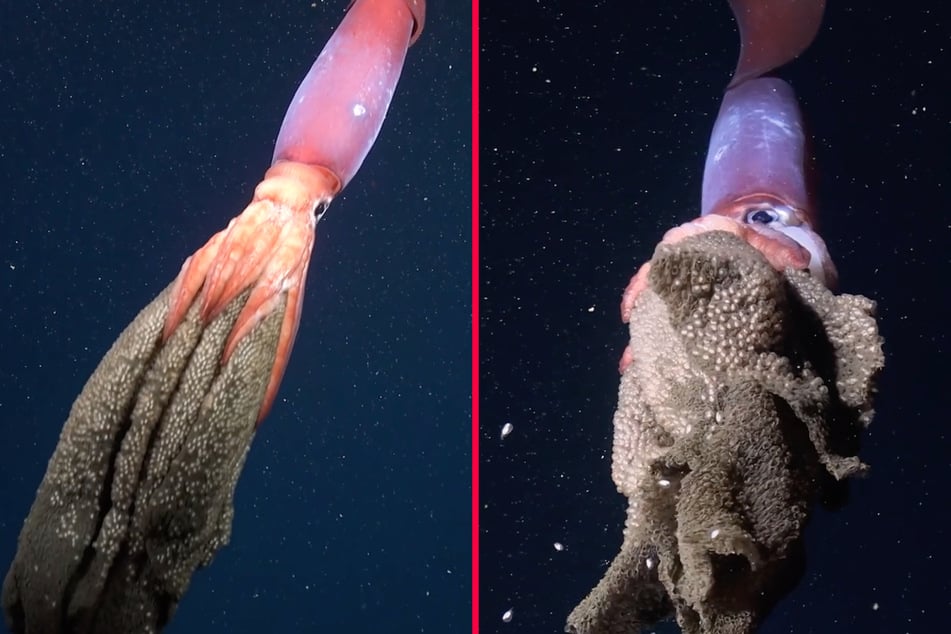Giant quid protecting her babies caught on camera in astonishing footage!
Valparaíso, Chile - An international team of scientists captured stunning footage of a giant squid carrying her eggs through the depths of the ocean.

As part of the Chilean Margin 2024 expedition, the Schmidt Ocean Institute joined with Doctors Eulogio Soto of Universidad de Valparaíso, Jeffrey Marlow from Boston University, and Patricia Esquete from the University of Aveiro to explore the deep sea floor off the coast of Chile.
They used a remote controlled submarine equipped with a camera which dove hundreds of feet below the ocean's surface.
What it found down there was nothing short of extraordinary: a massive black-eyed squid (Gonatus onyx) carrying more than 3,000 eggs!
While most squids lay their eggs and then leave them on the sea floor, the black-eyed squid is known to incubate them over a period of around six months, despite the tremendous toll it takes on the mother.
"A female Gonatus onyx will carry her large egg mass for months, keeping it suspended from hooks on the squid’s arms," the Schmidt Ocean Institute explained in a post on LinkedIn.
"Researchers suspect the incubation time is 6–9 months, during which time the female will pump water around the cluster (up to 3,000 eggs) as she swims, keeping them supplied with oxygen," the post reads.
"This also has a rippling effect that helps the more mature hatchlings (which again, should really be called inklings, but aren’t) break free of their eggs when they are strong enough to swim on their own."
The whole ordeal is extremely dangerous for the mother squid, as the excess weight of the massive eggs mass makes her an easy target for deep-diving predators.
"After laying the eggs she will go without feeding, and by the time they hatch, she will be close to death," the post said.
Cover photo: Collage: Screenshots/LinkedIn/schmidt-ocean-institute
